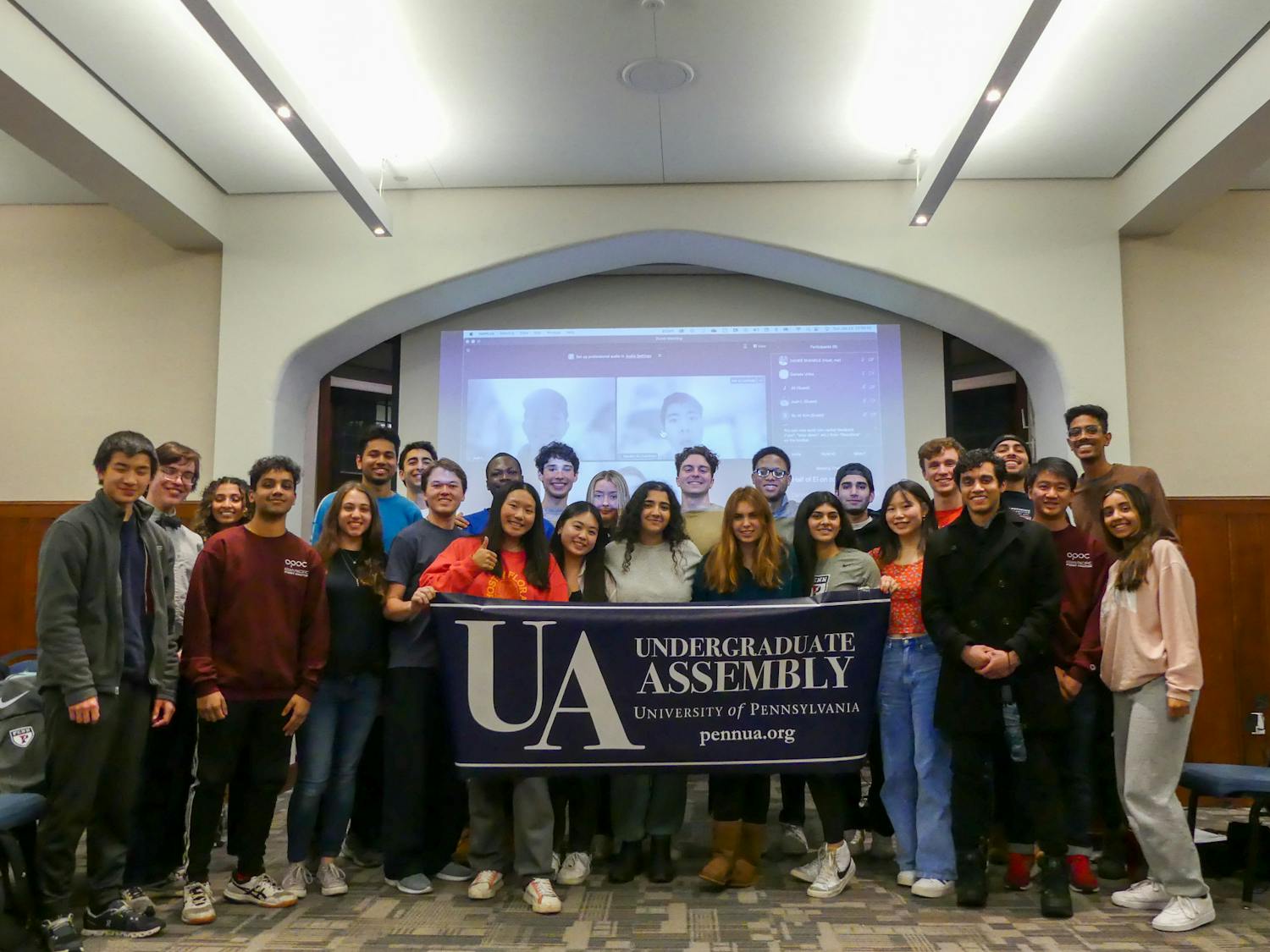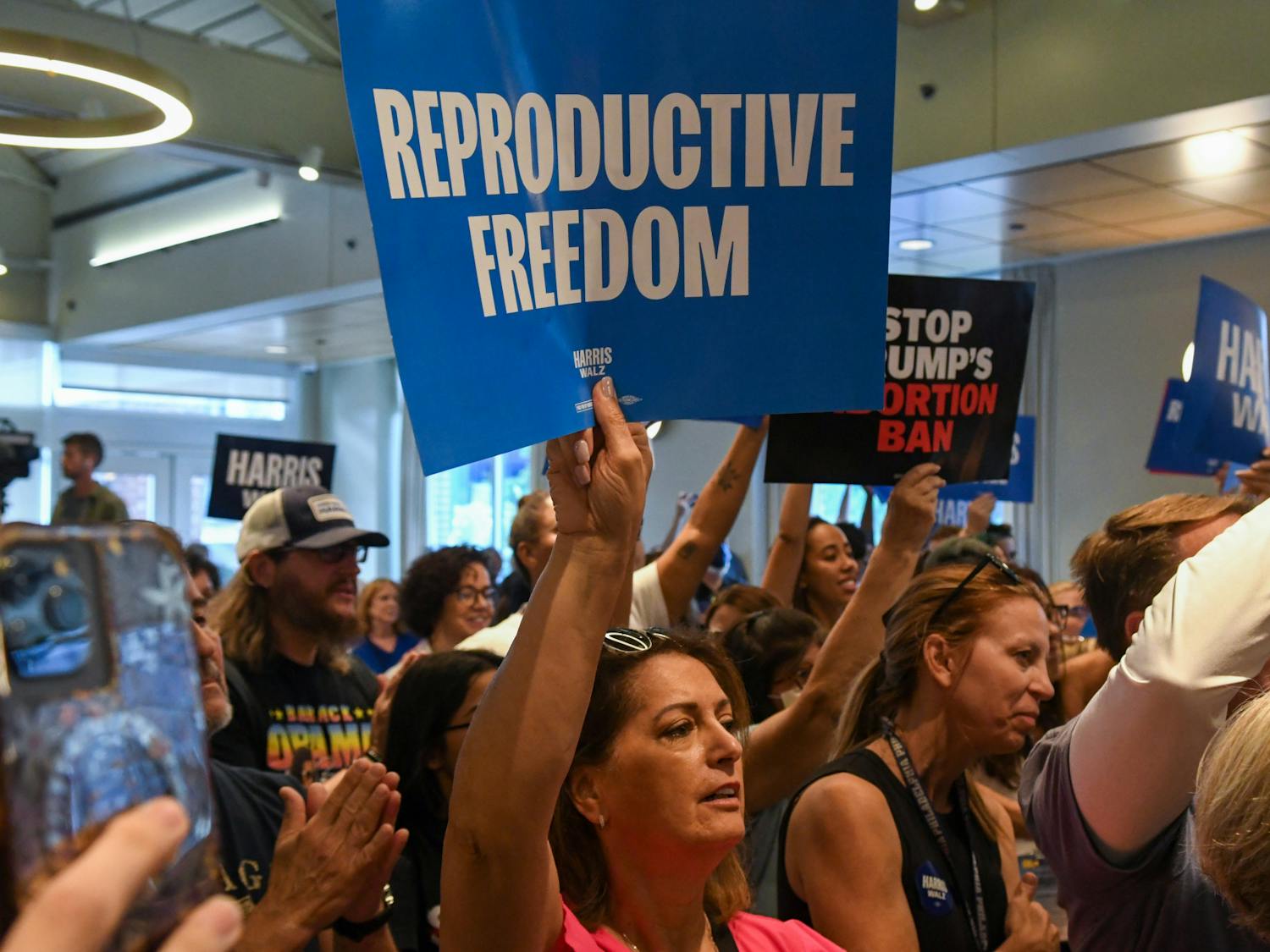The American Academy of Pediatrics recently issued a policy statement declaring support for people in gay relationships who wished to adopt their partner's children.
And in a recent Internet poll, 52 percent of voters said that gay couples should not be allowed to adopt.
While neither of these facts accurately indicates public sentiment, it's clear the debate strikes at the heart of what mainstream America holds most dear -- "family values."
Family values are perceived as the country's moral backbone. Children are the future. They are hope. They are innocence. All this sounds wonderful.
But encapsulated in those two words are a host of exclusionary rigidities, laden with ponderous value-judgements.
Endless TV commercials scream the same message: this way is the right way! Mother must choose the washing powder, approve baby's medicine and be ready to bake Pillsbury Rolls at all times. Father must evade the chores, drive in his nice car to the office and screw up the cooking.
Presidential candidates, on the approach to election day, are advised to kiss as many babies as possible. Their wife and two kids are on conspicuous display at least half of the time -- as if being married and having children implies some kind of moral superiority.
The very definition of a "happy ending" in our popular media requires a man and a woman dancing off into the sunset in anticipation of marital, child-bearing bliss. Cinderella, Sleeping Beauty and Bridget Jones' Diary are one and the same. The only movie I can think of that ends with the women as free independents is Thelma & Louise. They drive off a cliff.
Not a viable alternative.
The fact that gay parenting -- in this day and age -- is still considered an incendiary idea demonstrates the level to which America stubbornly clings to its outdated definition of family values. Alternative family structures abound in the United States, but the impression remains that the "normal" and "correct" formation is man, woman and biological child.
This isn't a bad formation, but there are other possibilities -- such as same-sex marriage and adoption.
While discussing these issues, it's easy to fall into a debate on the rights and wrongs of gay relationships and parenting. Even the AAP, to justify its stance, sites the "growing body of scientific literature" as proof that children of gay partnerships have developed just as well as any others.
This is good news, but it's not the point. Gay parents shouldn't require permission or approval from the rest of us to bring up children.
In fact, "grading" parental performance is nothing but paternalistic unless it's specifically geared toward creating tangible strategies for the improvement of family life.
Any other kind of debate --particularly on moralistic terms -- implies that we have the right to judge. It implies that judging serves more than our own misconceived sense of self-righteousness.
Of course, finding homes for children is a responsibility that requires careful assessment of each individual environment. But objections to same-sex parents are not being made on an individual level. They are being made on a national level.
The only way such a judgement is possible (other than through plain bigotry) is when our idea of "family" is so inflexible that no alternative structure can be regarded as valid.
In real life however, many of us would define our "family" in unusual ways. Friends, aunts, uncles, grandparents and siblings often provide us with the love and support that is not available -- for whatever reason -- from our biological parents.
Living in southern Africa, it was virtually impossible to find a household where the man and woman were raising their biological children together. There would be children from previous relationships, cousins or unrelated youngsters in the house. Rather than a male and female couple at the helm, there might be a woman with her mother, sister, brother or friend.
The family environment -- encapsulated by a pattern of actions, rather than two people --was wide and flexible enough to absorb any child, regardless of parentage.
That's what family should mean, and why the argument that man and woman must rear a child since man and woman created it doesn't make sense. The two processes require entirely different things.
The first requires a sperm, an egg and some lust.
The second is about the creating a loving environment that is reliable, dedicated and unconditional.
It shouldn't take the results of numerous scientific studies to tell us that gay couples are well able to provide this. Giving them a legal structure in which to do so simply offers the state-sponsored securities every child should have as an unquestionable birthright.
Hilary Moore is a third-year Ethnomusicology graduate student from Perth, Scotland.








